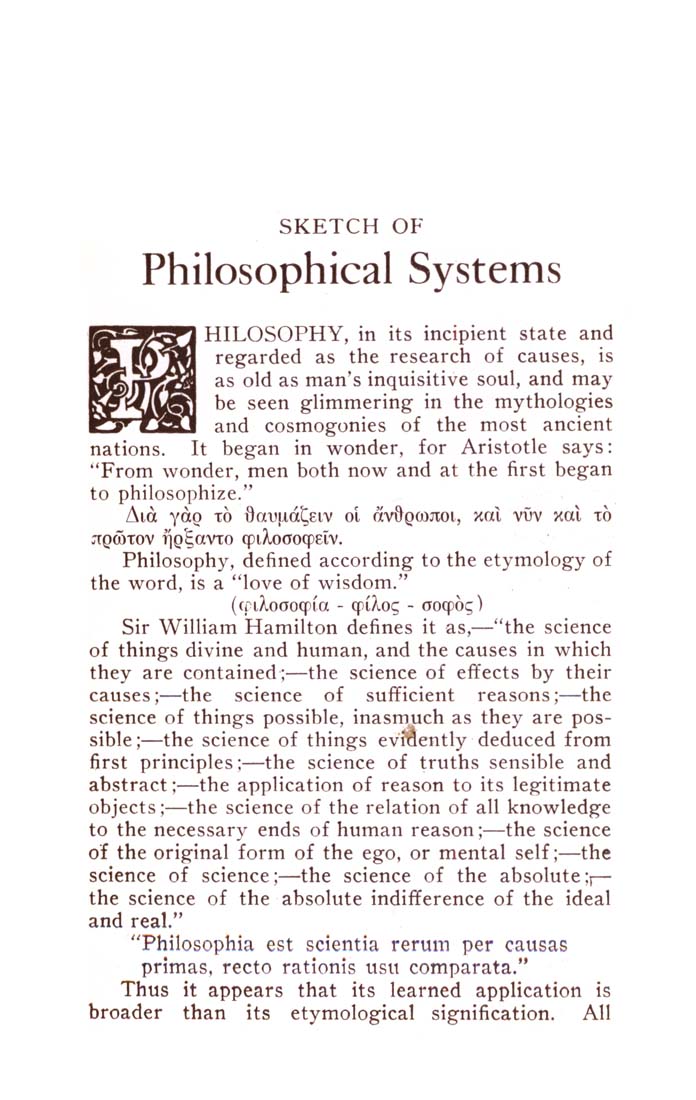SKETCH OF
Philosophical Systems
HILOSOPHY, in its incipient state and
regarded as the research of causes, is
as old as man's inquisitive soul, and may
be seen glimmering in the mythologies
and cosmogonies of the most ancient
nations. It began in wonder, for Aristotle says:
"From wonder, men both now and at the first began
to philosophize."
Aid ydp TO Qaujid^Eiv oi dvOQWJioi, xal vvv xal x6
jiQdnov f]Q^avTo cpiA,oaocpEiv.
Philosophy, defined according to the etymology of
the word, is a "love of wisdom."
(crdooocpia - cfiXoq - oocpoc;)
Sir William Hamilton defines it as,—"the science
of things divine and human, and the causes in which
they are contained;—the science of effects by their
causes;—the science of sufficient reasons;—the
science of things possible, inasmuch as they are pos¬
sible;—the science of things evfaently deduced from
first principles;—the science of truths sensible and
abstract;—the application of reason to its legitimate
objects;—the science of the relation of all knowledge
to the necessary ends of human reason;—the science
of the original form of the ego, or mental self;—the
science of science;—the science of the absolute;;—
the science of the absolute indifference of the ideal
and real."
"Philosophia est scientia rerum per causas
primas, recto rationis usu comparata."
Thus it appears that its learned application is
broader than its etymological signification. All
|








